A peek behind the scenes at France's annual rose extravanganza at the Parc de Bagatelle
Charles Quest-Ritson, quite literally the man who wrote the book on roses, reveals what goes on at France's annual Concours international de roses nouvelles – one of the highlights of both the social and the gardening calendars.
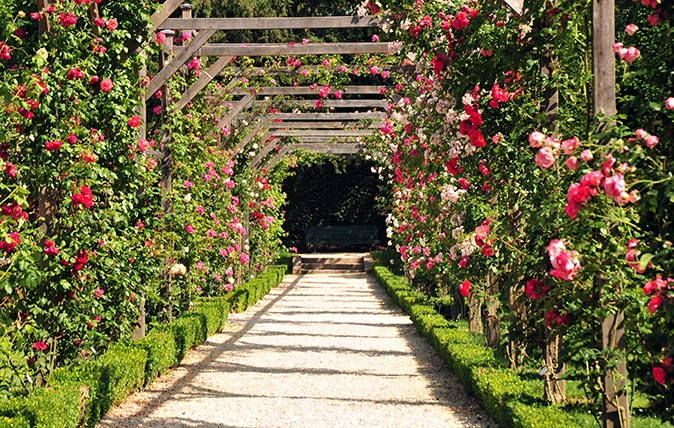

The market for roses is driven by novelty – and always has been since French nurserymen started large-scale rose-breeding 200 years ago. The unchallenged assumption is that new roses are better than old. New is beautiful: the really old roses that Country Life readers appreciate – Gallicas and Damasks – are only for contrarians and cranks. This year’s novelties, we are told, are infinitely better than last year’s. And no person of taste should grow anything like those vulgar, scentless Floribundas in shades of orange and yellow that were so fashionable 50 years ago.
Well, I suppose there’s some truth in that, but I have no doubt that the gorgeous roses we adore today, such as David Austin’s ‘English’ roses, will likewise be sneered at by garden snobs in another five decades’ time.
Fifteen years ago, my wife and I wrote an Encyclopedia of Roses that was well received, although it listed only 2,000 of the 15,000 different roses then known to be available in commerce. The French edition sold very well – it was published by Gallimard (very upmarket) and seriously reviewed in Parisian newspapers such as Le Monde, which considered it to be an important contribution to the history of Western culture.
It established us as serious intellectuals among French horticulturists and the requests to lecture, review, write articles and so on began to roll in. Best of all is the annual invitation to help the French assess their new varieties in the national rose trials at the Parc de Bagatelle in the Bois de Boulogne, Paris.
Bagatelle’s magnificent rose garden was laid out in 1906, with box-edged beds and armies of standard roses and swags and pergolas dripping with climbing and rambling roses. Its Concours international de roses nouvelles remains one of the social highlights of the French horticultural calendar.
Early in May, we receive a formal invitation from the mayor of Paris, a Socialist lady of Spanish origin called Anne Hidalgo. She’s nowhere to be seen when we turn up on the day of judgment a month later, but we’re greeted by the director of Paris’s parks and gardens. Our fellow judges are the great and the good of French gardening, plus some air-headed parfumiers who comment on the scent and a few oddbods like us, including a charming English opera singer who has a famous modern rose named after her.
We’re divided into small groups and sent round to inspect some 150–200 new roses that have been submitted by breeders from all over the world. Each is discussed and marked by what we see and like on the day. It’s all great fun, provided it doesn’t rain.
Sign up for the Country Life Newsletter
Exquisite houses, the beauty of Nature, and how to get the most from your life, straight to your inbox.
The real judging is done beforehand by what they call the ‘permanent jury’, meaning experts who inspect the roses very carefully every week over a couple of seasons and assess them for health, vigour and other qualities in accordance with a strict template. I’ve never discovered whether our input is allowed to swing the outcome, but I suspect that nothing is left to chance.
Next, we come to the important business of the day: lunch in the restaurant that occupies what was once the royal stables. There’s no seating plan, so you never know whether you’re going to sit next to a Parisian duchess or a nurseryman from Languedoc, but the tables are circular, so you can always shout across to someone more interesting. No one talks about the roses, of course, but there’s always lots of advice on whose garden is worth seeing and, my dear, have you met her wonderful designer who makes such brilliant tableaux with ancient watering cans?
Finally, we retire to hear the trial results. There are lots of different classes, so the announcements go on for ever, with speeches and handshakes and kisses (where appropriate) and lots of journalists and press photographers whose copy appears in the weekend papers.
We’re always surprised by some of the prize-winners because they don’t look their best on our judging day, but the permanent jury’s choice is impeccable. Years later, when you look at the list, you realise that the judges really did pick the best new roses of the year, but, by then, of course, the winners will have been superseded by yet more roses, confidently introduced as newer and better than anything else the world has ever seen.
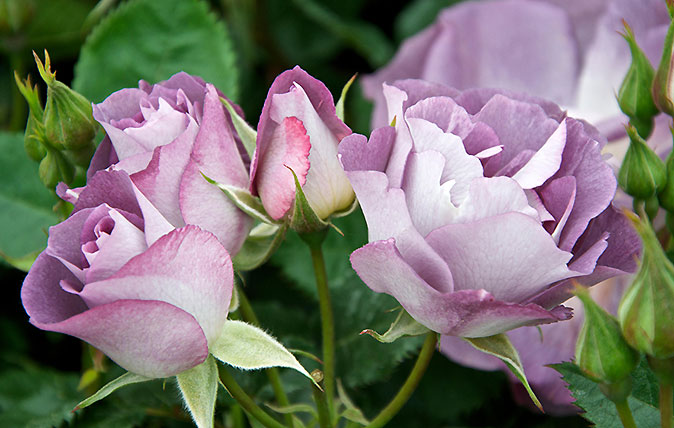
Ultimate guide to growing roses: What to plant, where to plant it, and why you really don’t need to prune
Charles Quest-Ritson, author of the RHS Encylcopedia of Roses, tells you everything you need to know about growing roses.
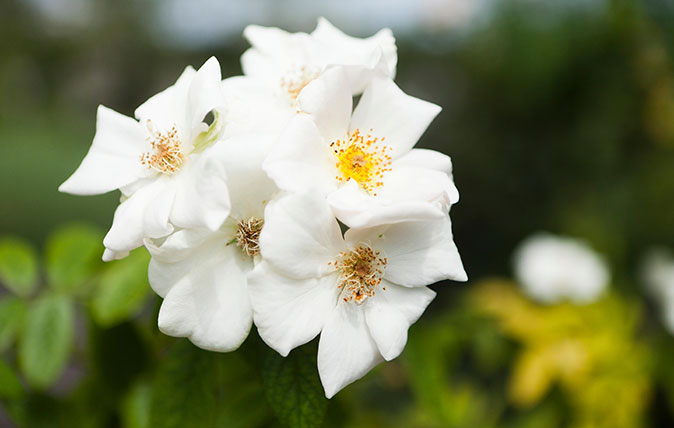
Credit: Alamy
Musk Roses: Beautiful flowers, and the 'sweetest smell in the air' by far
Mark Griffiths discusses the wonderful qualities of the enigmatic but irresistible musk rose – aka osa moschata.
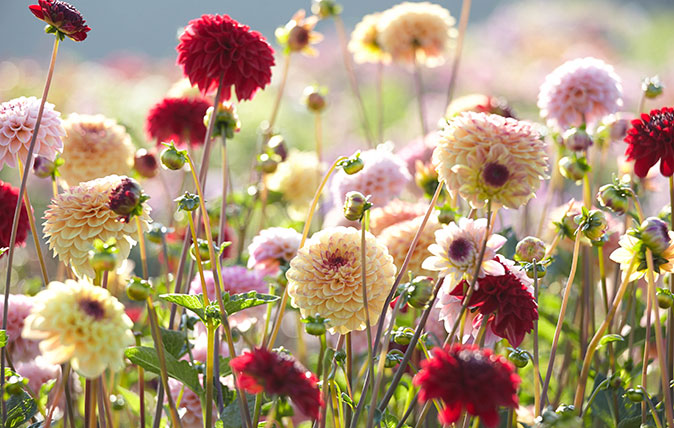
Dahlias, the 'miracles of complexity' that we've learned to love and cherish
Charles Quest-Ritson talks about dahlias, once so unloved, and how they enjoying a surge of popularity.
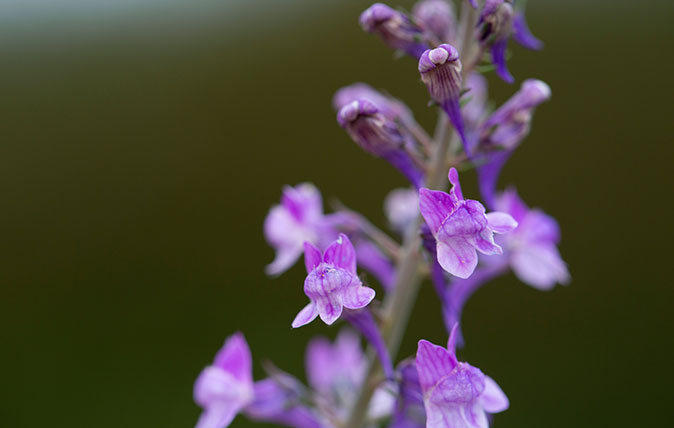
Credit: Alamy
The daftest plant name in English, and how it belongs to a wonderful flower just starting to show its potential
There are a lot of silly names for flowers our there – and Charles Quest-Ritson has a chilling warning for those
Country Life is unlike any other magazine: the only glossy weekly on the newsstand and the only magazine that has been guest-edited by HRH The King not once, but twice. It is a celebration of modern rural life and all its diverse joys and pleasures — that was first published in Queen Victoria's Diamond Jubilee year. Our eclectic mixture of witty and informative content — from the most up-to-date property news and commentary and a coveted glimpse inside some of the UK's best houses and gardens, to gardening, the arts and interior design, written by experts in their field — still cannot be found in print or online, anywhere else.
-
 'This wild stretch of Chilean wasteland gives you what other National Parks cannot — a confounding sense of loneliness': One writer's odyssey to the end of the world
'This wild stretch of Chilean wasteland gives you what other National Parks cannot — a confounding sense of loneliness': One writer's odyssey to the end of the worldWhere else on Earth can you find more than 752,000 acres of splendid isolation? Words and pictures by Luke Abrahams.
By Luke Abrahams Published
-
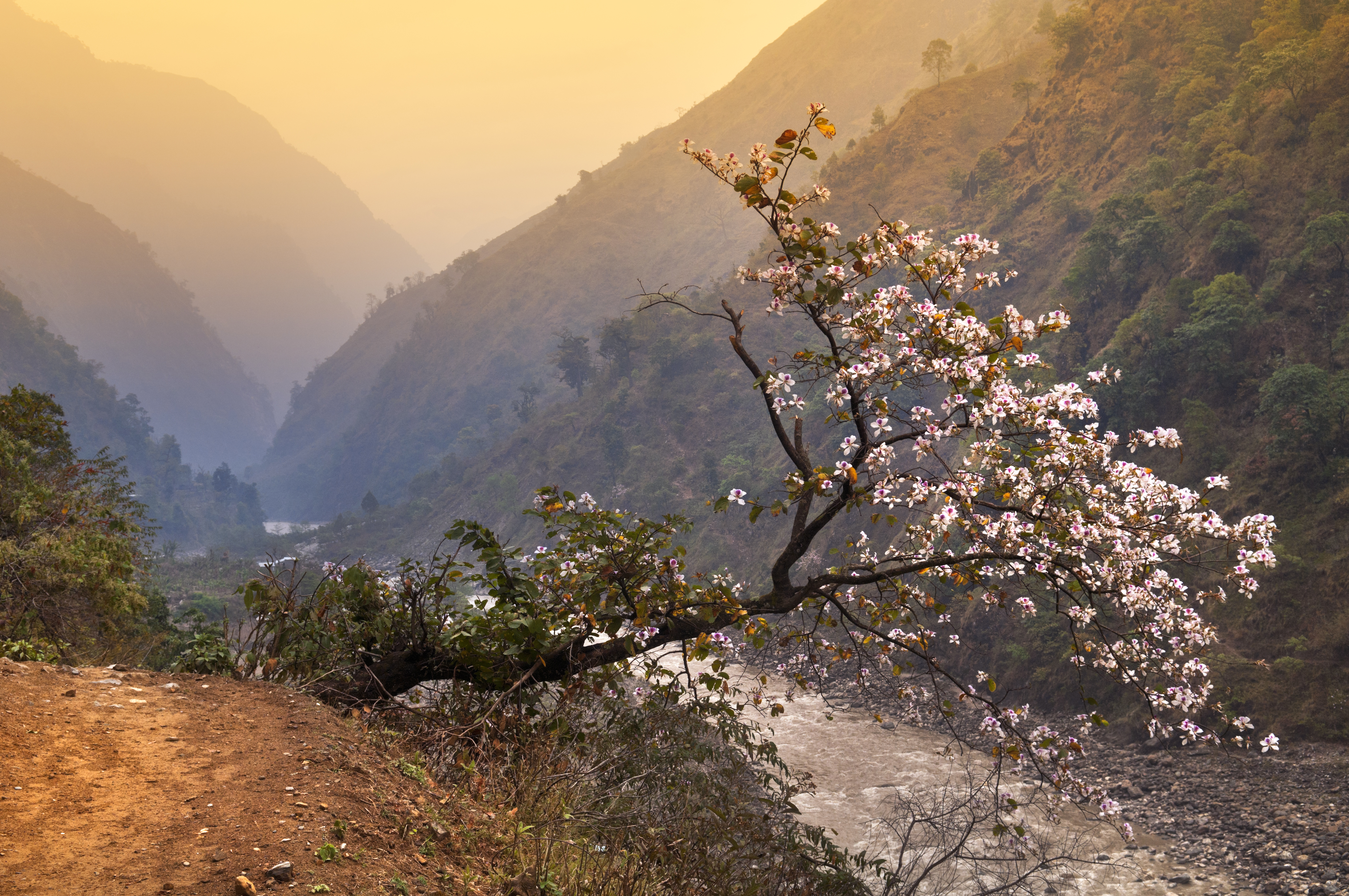 The man who trekked Bhutan, Mongolia, Japan, Tasmania and New Zealand to bring the world's greatest magnolias back to Kent : 'A whirlwind of charm and energy... and a prince among plantsmen'
The man who trekked Bhutan, Mongolia, Japan, Tasmania and New Zealand to bring the world's greatest magnolias back to Kent : 'A whirlwind of charm and energy... and a prince among plantsmen'Magnolias don't get any more magnificent than the examples in the garden at White House Farm in Kent, home of Maurice Foster. Many of them were collected as seed in the wild — and they are only one aspect of his enthralling garden.
By Charles Quest-Ritson Published